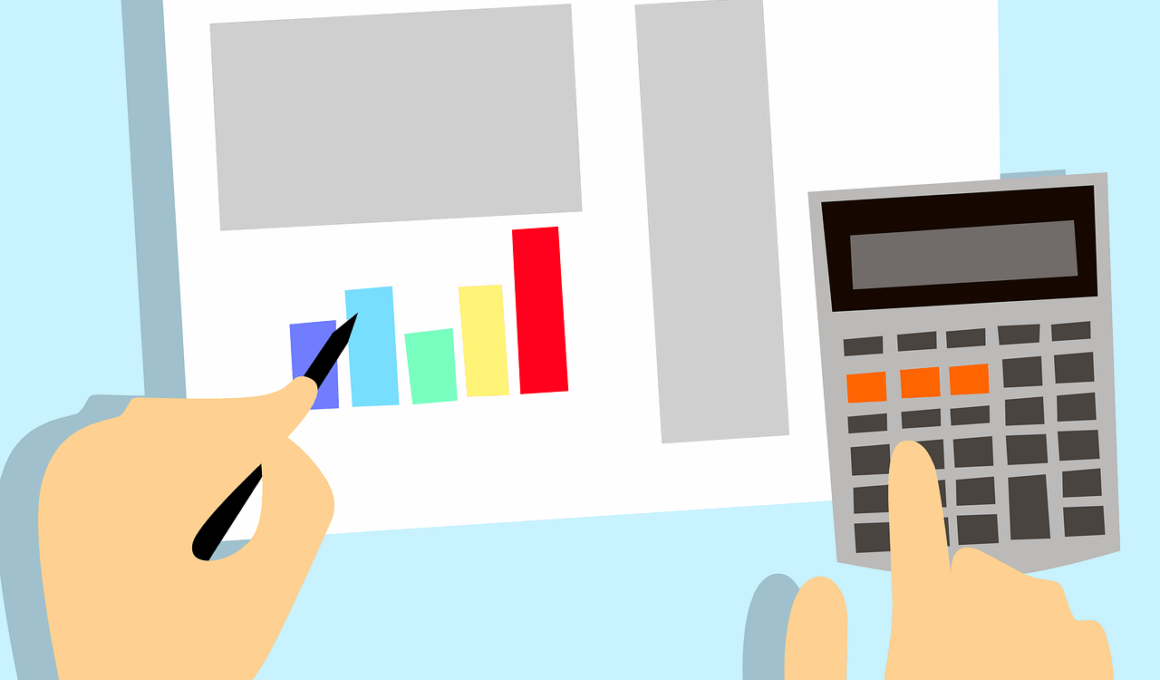Using Tax Refunds Wisely: Smart Financial Strategies
Receiving a tax refund can evoke mixed feelings; it can both be a delightful surprise and a source of stress about managing the funds wisely. Upon receiving this additional money, individuals have the opportunity to make significant improvements in their financial situation. Understanding how to allocate your refund effectively is crucial. Many people consider splurging on luxuries, but strategic planning can yield greater long-term benefits. Take the time to assess your current financial needs and consider priorities. Paying off debt can significantly reduce financial strain, improving credit score over time. Alternatively, investing in a savings account or an emergency fund ensures financial safety in case of unexpected expenses. Remember, it’s essential to strike a balance between enjoying your windfall and planning for future needs. Seek professional advice if needed to make informed decisions. Ultimately, the choice lies in how you wish to utilize your unexpected financial gain, which can comfortably enhance your financial well-being. Start early in analyzing your priorities to leverage the full potential of your tax refund.
Another smart financial strategy using your tax refund is contributing to retirement savings. Investing in your retirement account at an early stage allows for compounding interest, which can grow your funds significantly over time. Consider speaking with a financial advisor to understand the best options available for your situation. For some, contributing to an IRA could be beneficial. Depending on eligibility, you could contribute to a traditional IRA or a Roth IRA. Understand the limits for each and the tax implications. Additionally, investing in your education by taking courses or gaining new skills may also be a wise use of your funds. Skill advancement can lead to better job prospects or promotions. Online courses or certifications are often affordable and flexible, allowing you to learn at your own pace. It’s equally important to explore potential tax deductions related to education expenses. Evaluate local community colleges or reputable online platforms that offer courses aligned with your career goals. Investing in education is often a long-term strategy and can provide dividends in improved income when utilized correctly.
Investing in Home Improvements
Home improvements not only elevate your living environment but can also increase property value. Allocating part of your tax refund towards home improvements is often a prudent financial strategy. This can range from minor projects such as painting or landscaping to more extensive renovations like kitchen upgrades or bathroom refurbishments. These enhancements often make your home more appealing in the real estate market. It’s advisable to prioritize improvements based on potential returns on investment when you decide to sell your property. Research which upgrades yield the most value in your area and opt accordingly. Additionally, investing in energy-efficient appliances or systems can reduce monthly utility bills, leading to further savings over time. Such projects not only enhance your home’s comfort but also contribute to the environment. Use online resources to find guides on home improvement and speak with professionals about what’s feasible within your budget. Ultimately, enhancing your home is a dual benefit: it brings personal satisfaction now and potentially larger returns in the long run.
Another significant consideration for your tax refund usage is charitable giving. Donations to qualified charities can not only make a difference in your community but also provide potential tax deductions for next year. Assess which causes matter most to you and consider splitting your refund among various organizations. Local shelters, food banks, and educational institutions often benefit immensely from contributions. Researching charities to understand their impact can ensure that your funds are directed to areas needing support. Depending on your chosen charities, consider long-term commitments alongside one-time donations as a sustainable approach. Many organizations have programs that facilitate easy monthly giving, allowing you to stretch your refund investment over the year. Be sure to keep all donation receipts for tax reporting purposes. Generosity often fosters a sense of fulfillment when utilized wisely. If you can, also consider volunteering your time in addition to making a financial contribution. Engaging directly can deepen your understanding of the issues and possibly provide a greater impact to the causes you care about.
Saving for Future Goals
One of the smartest financial strategies is to funnel your tax refund into savings for future goals. Establish specific targets such as buying a car, saving for a vacation, or preparing for a future home purchase. Setting clear, tangible objectives can help you stay focused on directing your funds wisely. Having a dedicated savings account for each goal not only keeps your money organized but also maximizes interest earnings. Research different savings vehicles to find the one that provides the best options for your goals, while ensuring accessibility. You might also consider high-yield savings accounts that offer better interest rates. Many banking institutions provide these accounts, which can help your balance grow more quickly. Furthermore, periodically reviewing your savings goals encourages motivation, making adjustments as life changes. Incorporating your tax refund into a budget for achieving your financial objectives can enhance planning. Develop a savings plan that helps you stay disciplined and achieves your desired outcomes over time with consistent contributions.
Using your tax refund to create or enhance your emergency fund is another beneficial financial decision. An emergency fund acts as a safety net, preventing you from resorting to high-interest loans or credit cards during financial emergencies. Experts typically recommend saving enough to cover three to six months of living expenses. If you currently have an inadequate emergency fund, your tax refund provides an excellent opportunity to bolster it. Regularly depositing portions of unexpected finances into your fund can help you grow it over time. Finance experts highlight the importance of liquidity; find a savings account that provides easy access to funds when emergencies arise. While it can be tempting to spend the refund on non-necessities, prioritizing building this fund is essential for financial security. Additional peace of mind accompanies having that safety cushion in place. Consider drastic lifestyle changes that might alter your financial needs and keep your goals in check. The benefit of an emergency fund cannot be understated as it serves to relieve the pressure during urgent situations.
Final Thoughts and Budgeting
In conclusion, the smartest method of utilizing your tax refund sustainably lies in comprehensive planning. Whether paying off debt, contributing to retirement, or earmarking funds for future goals, it’s important to create a structured budget. Document all intended expenses and savings goals to maintain clarity and eagerness in your journey. Reassessing budgets periodically can ensure you remain on track and make any necessary adjustments promptly. Having clear financial plans leads to responsible spending and increased financial literacy. As you receive your refund, take a moment to reflect on what will provide value to you today and in the future. Evaluating your financial landscape is crucial in making informed decisions. Engaging with financial advisors, utilizing budgeting tools or apps can also help maximize your tax refund’s impact. Ultimately, the most successful use of a tax refund will align with your personal financial goals and empower you. Intended use backed by thoughtful financial planning can lead to successful outcomes, fulfilling both immediate desires and future needs.
Remember, utilizing your tax refund wisely takes commitment and discipline, contributing positively to your financial future. Each section of this article presents opportunities that could benefit you in different areas. Stay informed and keep your priorities aligned with your financial objectives. Leveraging these strategies can lead to a healthy financial journey.


